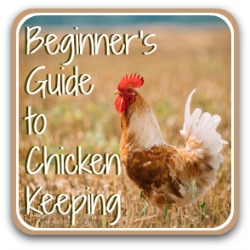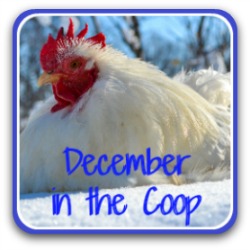- Home
- Roosters
Roosters – a good addition to your flock or a nuisance to be avoided?
So you think you might like to keep a rooster or two in your backyard flock but you're not sure whether it's a good idea?
Let me help you make that decision for your flock and your individual circumstances!
Making the decision about whether or not to add a male to your perfectly happy flock of hens is an important one.
On the one hand we have the often stunningly coloured, protective male who would bring unique qualities – and offer the advantages of having your own fertilised eggs.
On the other, there's the issues of noise and often aggression which may be (and are) perfectly natural behaviours, but not always welcomed by neighbours – or hens!
This series of articles help you explore the different aspects of caring for and managing roosters including information about their nutritional needs, how to manage their behaviour, and the overall implications for adding roosters to your flock.
You'll find links to everything you need to know about the male chickens to enable you to come to a properly informed decision, whether you're an experienced poultry keeper or a beginner thinking about having your first male.
The articles cover...
- good reasons to have roosters
- good reasons not to have them
- the potential impact on hens, and whether a male's "attentions" are really what your ladies need!
- dealing with issues of what they eat and how to make sure they get
- why they sometimes seem aggressive – and what to do about it.
Click on any of the button image links or headlines to go straight to a page crammed with all the information you'll ever need.
And if you already have a roo, and you'd like to tell us about him right here on this website, there's a page where you can celebrate your roosters and tell the world why he's a great addition to your flock – or not!
5 reasons why you should have a rooster.
Roosters.
Love them or hate them, there are some ways in which having a male with your flock has definite advantages.
Find out what they are, and whether a roo would be a good fit for your family, by taking a look at this article which suggests 5 good reasons why having a rooster in your flock is an excellent idea.
Colours, producing chicks, balancing the flock, seeing off predators – are any of these a good enough reason for you to make that decision?
5 reasons not to have a rooster in your flock!
No matter how good the reasons are for keeping a roo with your hens, there's no doubt that they can also cause some problems.
Noise, aggression, neighbour complaints, damaging your hens – and potentially damaging you – are you prepared for the negatives?
What are the other issues to consider, and is there any way they can be contained for a harmonious flock?
Discover the 5 top reasons not to keep a rooster, here.
What do roosters eat?
We may be reasonably confident in knowing what to feed our hens for a long, happy life. But what about our male chickens?
How, in a mixed gender flock, do we make sure that males get the proper levels of nutrients to meet their needs?
This article reviews the researched evidence about the changing needs of the rooster between hatch and adulthood. It covers not only what to feed, but how to make sure both males and females get the nutrients they need in a mixed flock.
Before you take the decision, make sure you can provide what your roosters will need to stay healthy!
How to deal with an aggressive rooster
Once a rooster's hormones kick in, their natural instinct is to guard their flock. But that can sometimes mean their behaviour towards you and your family can be aggressive.
At what point does your cute, friendly male chick turn from a cuddly ball of fluff to a monster whose aim in life seems to be to damage you as much as possible?
And importantly, what can you do to manage it?
This article gives details about why and when to watch for aggression in your male chickens, and details the way I've found to manage it which is both humane and effective.
Have a rooster? Tell us his story!
Do you have a roo who's an asset to your flock?
Or maybe you have a warning about keeping male chickens that you want to share with others?
Whichever is the case, you'll find an easy way to tell the story of your roo, and have it published here on this website.
Take a look at this page to find out how you can crow about your roo – and learn from other people's experiences, too!
More pages about general care for chickens.
- Home
- Roosters


















